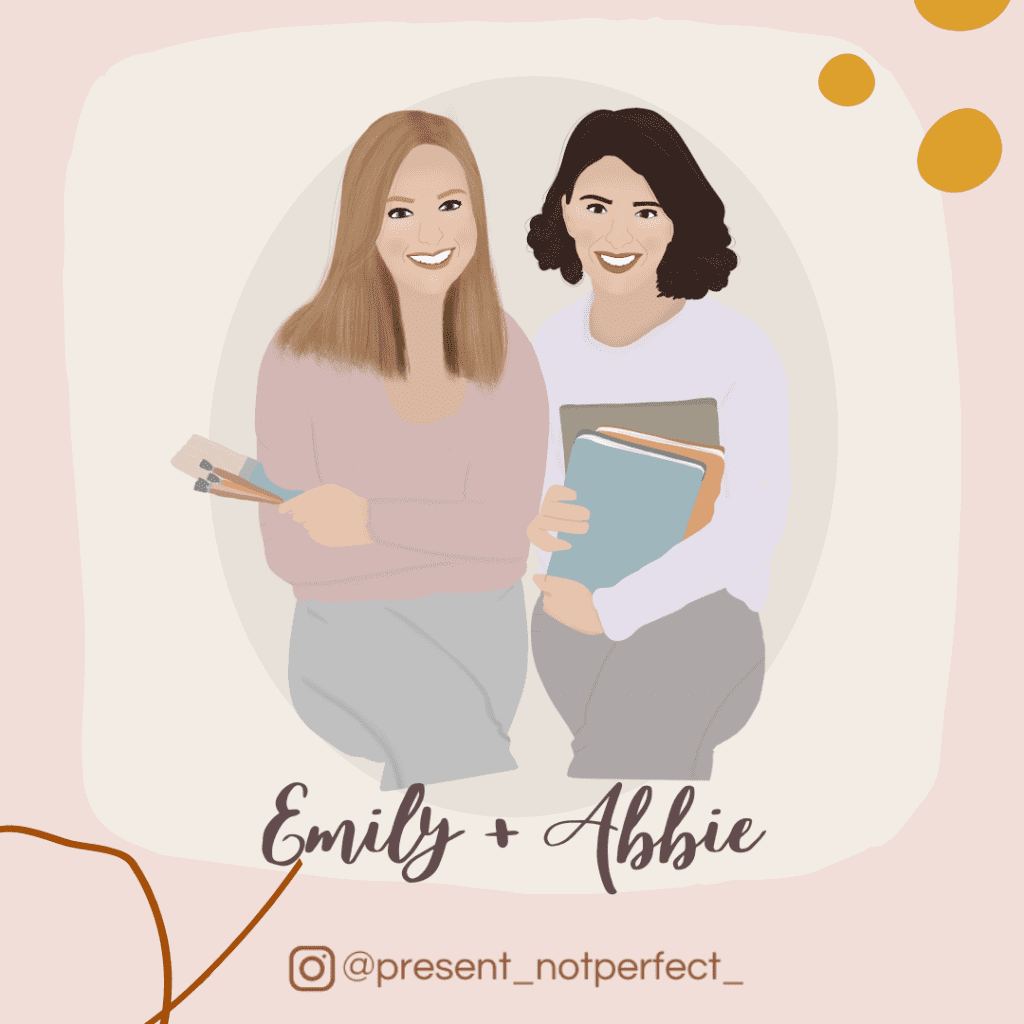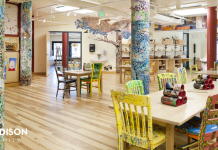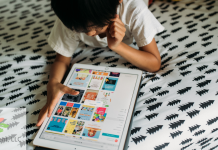May is Mental Health Awareness month and Emily Enstad and Abbie Pabon are two local Madison-area moms who felt the demands of pandemic parenting and decided to combine their professions (art therapist and teacher) into Present Not Perfect, a project working to provide mental wellness resources and support to families of young children.
Sometimes mental health can feel so abstract that we don’t know where to start when tackling important topics such as anxiety, self-esteem, or emotions with our kids.
Our mission is to help parents have more present, not perfect, moments with their kids through intentional art and play. Grounding activities that involve hands-on learning can not only soothe our central nervous systems and ignite our creativity, but it can also provide mindful opportunities for kids and parents to talk and have open discussions about sometimes tough-to-navigate topics.
Here are just 7 ideas you could try at home to better support your family’s mental health.
- Routines: In a world with so much unpredictability, it’s important to put in place consistent routines at home that children can rely on. Routines help kids feel safe. While we can’t control the unexpected schedule changes that inevitably happen to everyone, trying our best to protect routines at meal times, wake times, and bedtimes can allow our children to feel more stability if they know what to expect.
- Sensory-rich activities: Bins of dried beans and rice are not the only way to insert sensory play into your kids’ day. Kids can also reap self-regulatory sensory benefits from many other activities such as swinging, jumping into a pile of pillows, digging in the dirt, dance parties, hanging upside down on the monkey bars, running barefoot through the grass, getting fresh air, and more.
- Therapeutic art: Art making has inherent healing properties and recent studies show a reduction in the stress hormone cortisol, in participants who made art for just 45 minutes (*Kaimal 2016). Choosing materials and projects with the intention of being creative in the present moment can enhance self-expression and self-esteem. Art allows children to make sense of things they might not have words for. Being curious about images your child creates and asking questions about their process can be helpful too! If you are looking to learn more about Art Therapy and how to find a licensed art therapist check out Art Therapy.
- Read together: The benefits of shared time reading together are numerous. If you are looking to cater your library selections specifically for one topic or another such as anxiety, loss, friendship, jealousy, or self-esteem, check out our Bookshop for kids book lists sorted by common mental health topics.
- Small moments of undivided attention: In quarantine, I ran my family’s entire life directly from my phone-it’s where I ordered groceries, restocked toiletries, updated winter gear, connected with grandparents, found YouTube story hours, had virtual doctor’s appointments, and put library books on hold. My kids have never seen me use my screens as much as I have been required to in the past year. I’ve made it a personal goal to put away all screens for a small chunk of time each day where I spend at least 15 undivided intentional minutes with each of my kids each day. It has made a huge difference in their behaviors and regulation, and in mine, as well.
- Mindfulness: If you are wondering what all this talk is about mindfulness, it’s probably more simple than you think. In a definition provided by mindful.org, mindfulness can simply be described as “an honest and kind look at what is happening, what you see, feel, or hear in the present moment” without judgment. With kids, this could even look like playing a game of “I Spy” together or engaging in a nature sounds scavenger hunt (dog barking, water splashing, leaves crunching) next time you are out for a walk.
- Practice self compassion and seek additional support as needed: Above all else, we want you to know this: we are all just doing the best that we can with the resources that we have and all parents are good parents. Holding space for self compassion is a way to say to ourselves “I am human and other people struggle too, it’s okay if I make mistakes, perfection is not attainable.” If you are still wanting more support, experts are ready to help. Let’s normalize therapy. If you are looking for a therapist near you, you can go to psychologytoday.com and search by zip code.
 For more tips and resources — be sure to follow Emily and Abbie’s Present Not Perfect page on Instagram!
For more tips and resources — be sure to follow Emily and Abbie’s Present Not Perfect page on Instagram!
About the Authors
 Emily is an art therapist and LPC who loves camping and boating with her husband and two sons. Abbie is a special education teacher turned SAHM who enjoys hiking and salsa dancing with her husband and two daughters. Present Not Perfect is a passion project that has come to life during a year that mental health needs to be prioritized more than ever. You can find them on Instagram @present_notperfect or hanging out at the beach in Lake Mills where they live. We are thankful for the opportunity to collaborate with Madison Moms in order to get more resources to more families!
Emily is an art therapist and LPC who loves camping and boating with her husband and two sons. Abbie is a special education teacher turned SAHM who enjoys hiking and salsa dancing with her husband and two daughters. Present Not Perfect is a passion project that has come to life during a year that mental health needs to be prioritized more than ever. You can find them on Instagram @present_notperfect or hanging out at the beach in Lake Mills where they live. We are thankful for the opportunity to collaborate with Madison Moms in order to get more resources to more families!
References
Xiong, Jiaqi et al. “Impact of COVID-19 pandemic on mental health in the general population: A systematic review.” Journal of affective disorders vol. 277 (2020): 55-64. doi:10.1016/j.jad.
2020.08.001
Girija Kaimal, Kendra Ray & Juan Muniz (2016) Reduction of Cortisol Levels and Participants’ Responses Following Art Making, Art Therapy, 33:2, 74-80, DOI: 10.1080/07421656.2016. 1166832












